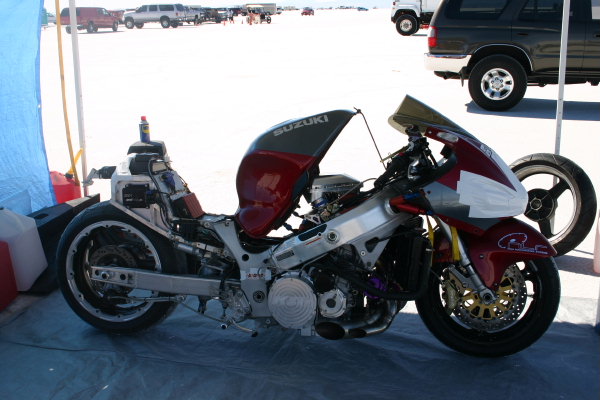Quite right.
There is no track in the world, where in real life qualifying conditions one could ever possibly measure 1-2 hp(actual) difference between two motorcycles, that are for all intents and purposes identical.
Even when ridden by the same rider and set up exactly the same way to the rider's requirements for maximum performance.
A figure of 4-5 hp or more is realistic to be able to measure a difference in qualifying track times, but 1-2 hp is dreaming.
I'm not even convinced that one would get 4-5 hp difference between running a 10w-30 grade oil and a 15w-50 grade oil in the same assembly that's producing 125+ hp anyway.
A 5w/10w-40 grade oil has been proven to be adequate in virtually all applications like the OP's. Especially given the requirements of the transmission as has been mentioned by yourself.
I personally would rather follow the manufacturers/engine builder's recommendations and be happy with what I'm doing.
For example, DUCATI even spec/recommend a 15w-50 grade full synthetic oil for their heaviest hitting street legal race bikes that develop in the order of 195+ hp.
Further.
Oil pressure and or flow are not the be all and end all(holy grail) of the full lubrication requirements of any shared sump assembly.
The engineers that designed the machine know the best out of anybody in the world.
I suppose one could easily run a 0w-20 grade oil and get away with it.
For a little while at least. [/quote]
Completely agree, well put!
There is no track in the world, where in real life qualifying conditions one could ever possibly measure 1-2 hp(actual) difference between two motorcycles, that are for all intents and purposes identical.
Even when ridden by the same rider and set up exactly the same way to the rider's requirements for maximum performance.
A figure of 4-5 hp or more is realistic to be able to measure a difference in qualifying track times, but 1-2 hp is dreaming.
I'm not even convinced that one would get 4-5 hp difference between running a 10w-30 grade oil and a 15w-50 grade oil in the same assembly that's producing 125+ hp anyway.
A 5w/10w-40 grade oil has been proven to be adequate in virtually all applications like the OP's. Especially given the requirements of the transmission as has been mentioned by yourself.
I personally would rather follow the manufacturers/engine builder's recommendations and be happy with what I'm doing.
For example, DUCATI even spec/recommend a 15w-50 grade full synthetic oil for their heaviest hitting street legal race bikes that develop in the order of 195+ hp.
Further.
Oil pressure and or flow are not the be all and end all(holy grail) of the full lubrication requirements of any shared sump assembly.
The engineers that designed the machine know the best out of anybody in the world.
I suppose one could easily run a 0w-20 grade oil and get away with it.
For a little while at least. [/quote]
Completely agree, well put!
Last edited:






